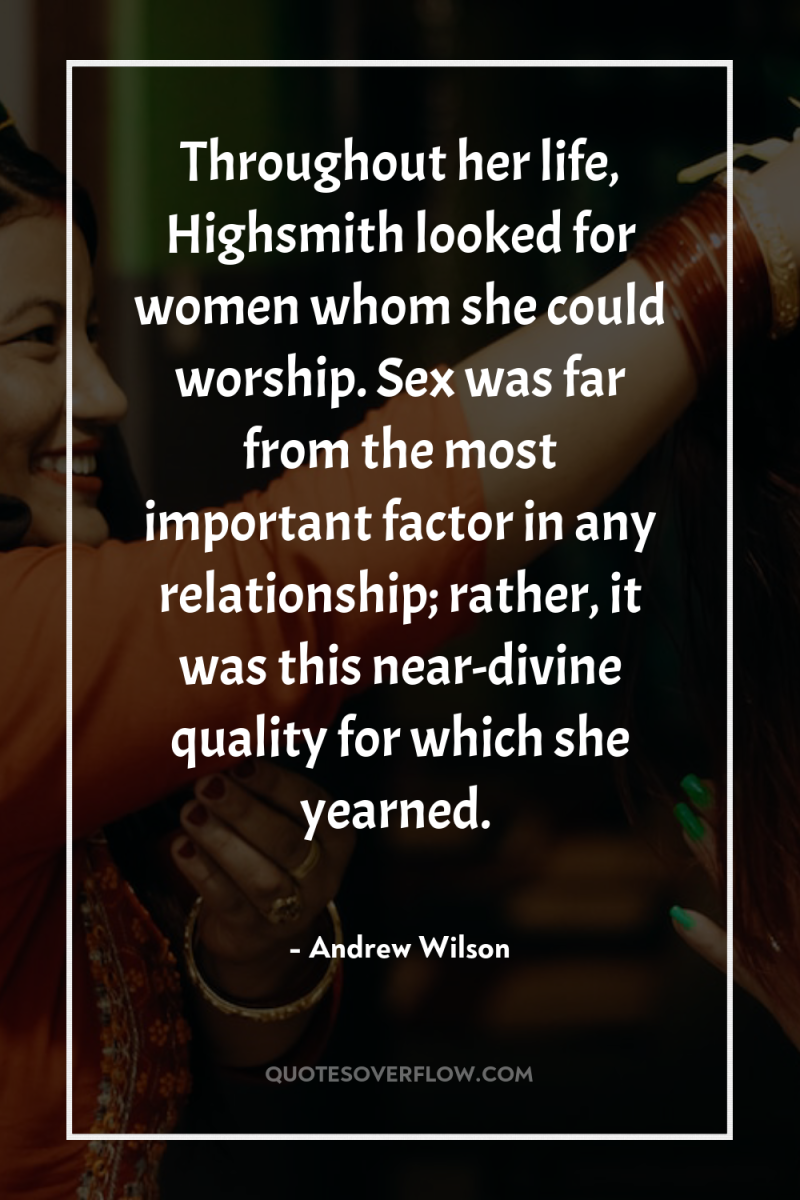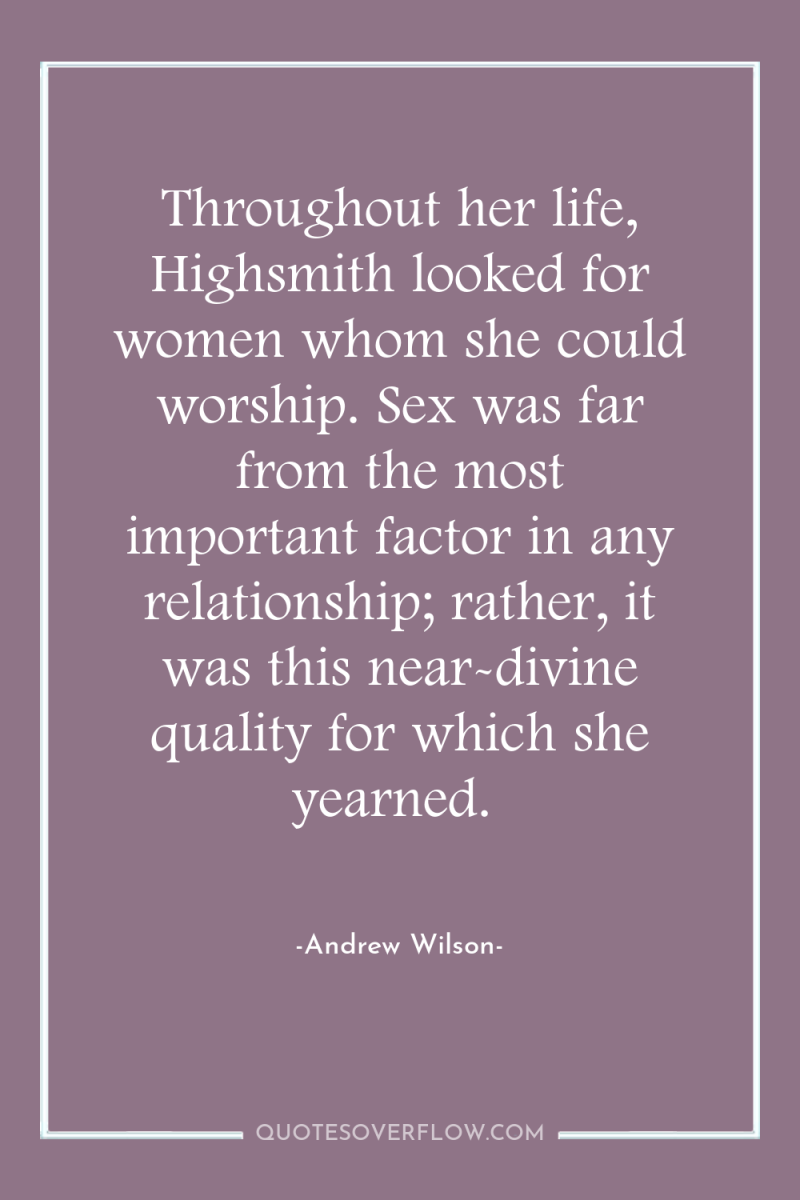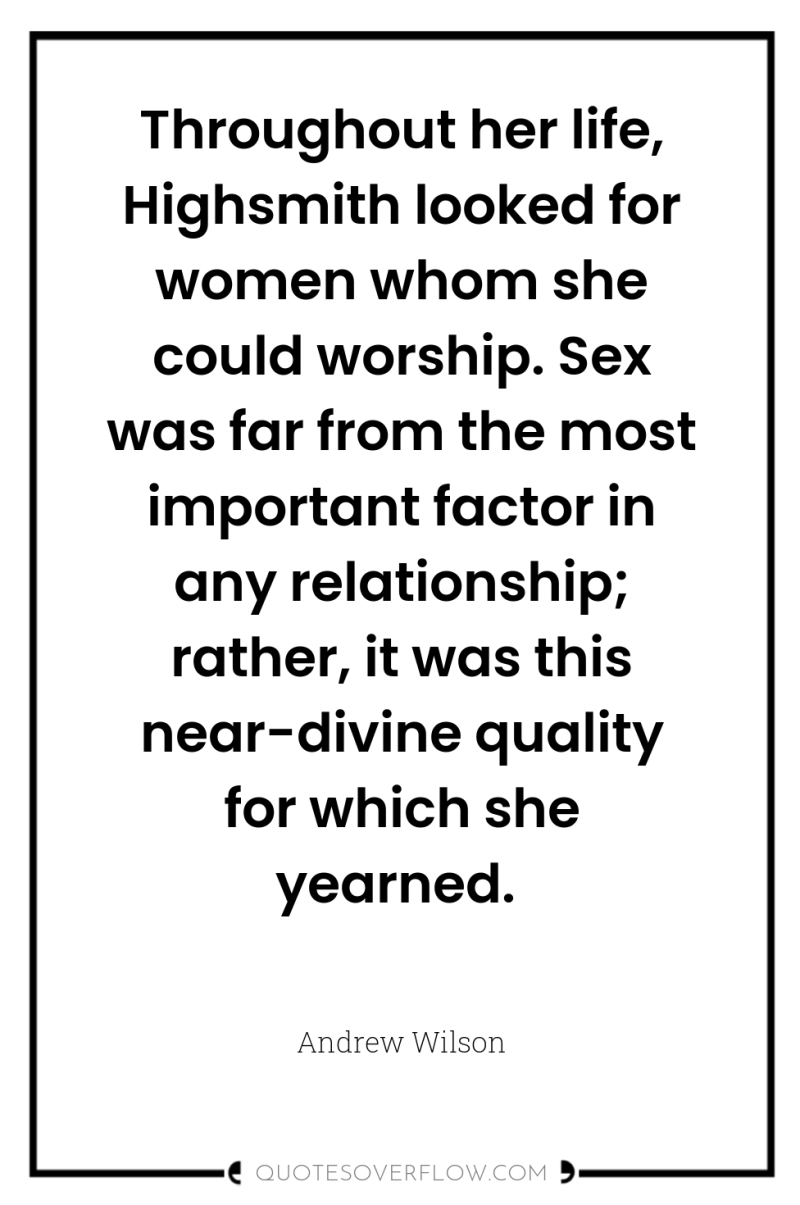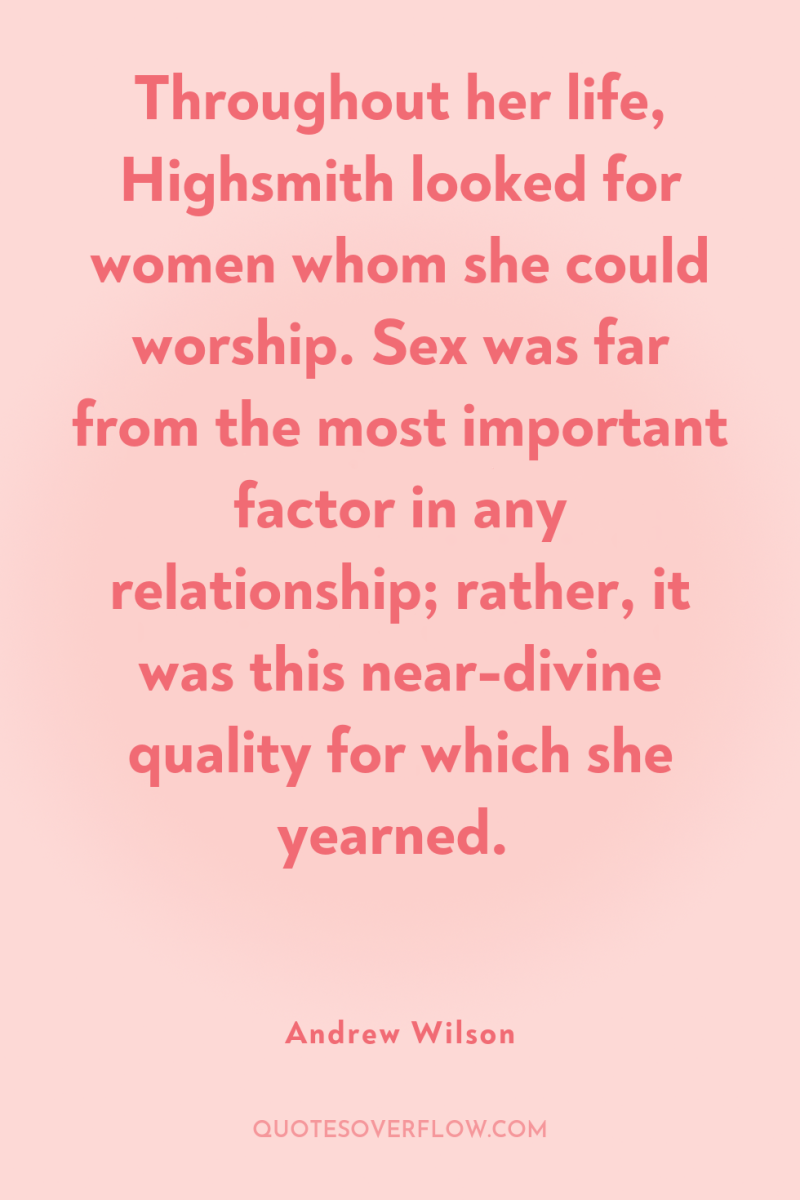Andrew WilsonThroughout her life, Highsmith looked for women whom she could worship. Sex was far from the most important factor in any relationship; rather, it was this near-divine quality for which she yearned.




About This Quote
Susan Highsmith was an American novelist, known for her psychological thrillers. Her life was filled with lots of tragedy and she had to take many risks in her life to achieve her dreams. She suffered from depression and was obsessed with death. Her obsession with death is like a drug for her.
She preferred to die than live without the love of God or any kind of success. She often said that no material success can replace the spiritual triumph that comes from having found the right man during your life.
Some Similar Quotes
- A lady's imagination is very rapid; it jumps from admiration to love, from love to matrimony in a moment.
- I would always rather be happy than dignified.
- Well, it seems to me that the best relationships - the ones that last - are frequently the ones that are rooted in friendship. You know, one day you look at the person and you see something more than you did the night before. Like...
- It’s probably not just by chance that I’m alone. It would be very hard for a man to live with me, unless he’s terribly strong. And if he’s stronger than I, I’m the one who can’t live with him. … I’m neither smart nor stupid,...
- I am not an angel, ' I asserted; 'and I will not be one till I die: I will be myself. Mr. Rochester, you must neither expect nor exact anything celestial of me - for you will not get it, any more than I shall...
More Quotes By Andrew Wilson
- [Patricia Highsmith] was overwhelmed by sensory stimulation - there were too many people and too much noise and she just could not handle the supermarket. She continually jumped, afraid that someone might recognise or touch her. She could not make the simplest of decisions -...
- After reading Burgum, [Patricia Highsmith] wrote in her cahier that, like Kafka, she felt she was a pessimist, unable to formulate a system in which an individual could believe in God, government or self. Again like Kafka, she looked into the great abyss which separated...
- [Patricia Highsmith] was an extremely unbalanced person, extremely hostile and misanthropic and totally incapable of any kind of relationship, not just intimate ones. I felt sorry for her, because it wasn't her fault. There was something in her early days or whatever that made her...
- [Patricia Highsmith] was a figure of contradictions: a lesbian who didn't particularly like women; a writer of the most insightful psychological novels who, at times, appeared bored by people; a misanthrope with a gentle, sweet nature.
- If [Patricia Highsmith] saw an acquaintance walking down the sidewalk she would deliberately cross over so as to avoid them. When she came in contact with people, she realised she split herself into many different, false, identities, but, because she loathed lying and deceit, she...